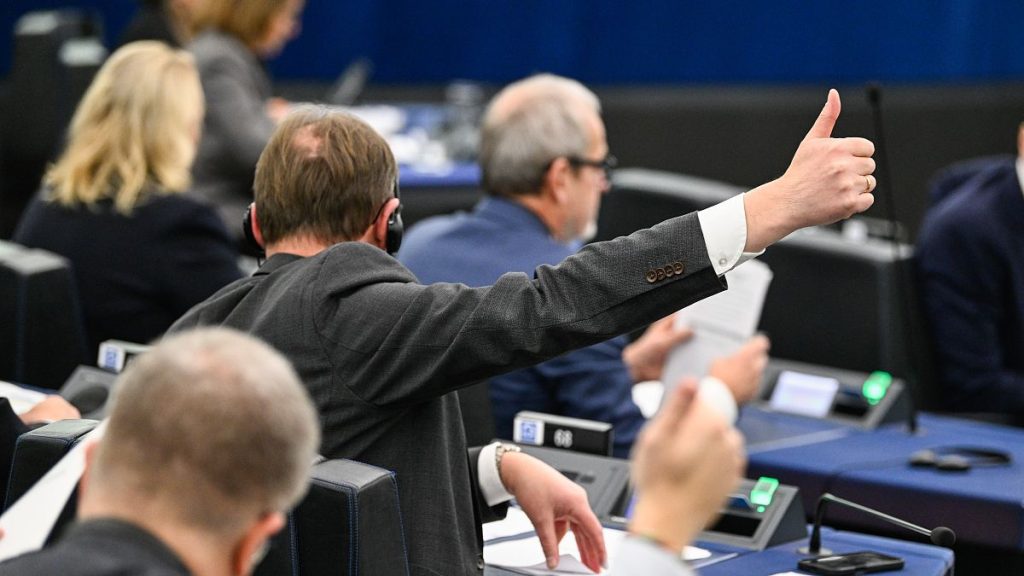The European Parliament has taken a significant step towards prioritizing public health by approving the establishment of a dedicated standing committee, known as SANT (Public Health Committee). This new committee, slated to commence operations in January 2024, signifies a significant upgrade from the previous subcommittee on public health, which functioned under the broader umbrella of the Environment Committee. This move underscores the growing recognition of health as a critical policy area deserving focused attention and resources within the European Union.
The formation of SANT represents a response to concerns that health issues were not receiving adequate attention within the larger Environment Committee. Proponents of the new committee argued that the breadth of the Environment Committee’s mandate, encompassing environmental protection, climate change, and food safety, often overshadowed crucial health-related matters. By creating a dedicated committee, the European Parliament aims to elevate the importance of health in the EU’s policy agenda, ensuring it receives the focused deliberation and resources it warrants. The increased membership of SANT, now comprising 43 MEPs compared to the previous subcommittee’s 30, reflects this commitment to enhanced focus and expertise in health policy.
SANT’s expanded mandate covers a wide spectrum of health-related issues. It will be responsible for overseeing policies related to pharmaceuticals and medical devices, two critical areas with significant implications for public health and patient safety. Moreover, the committee will play a crucial role in supervising the EU’s preparedness and response to health crises, an area that gained heightened importance in the wake of the COVID-19 pandemic. Mental health, a growing concern across Europe, will also fall under SANT’s purview, along with patients’ rights and the health aspects of bioterrorism. This broad mandate underscores the committee’s comprehensive approach to public health, encompassing both preventative measures and responses to emerging threats.
The committee’s responsibilities extend beyond internal EU policy to encompass crucial inter-institutional relationships. SANT will engage with other health authorities, including the European Centre for Disease Prevention and Control (ECDC) and the World Health Organization (WHO), fostering collaboration and information sharing on critical health issues. This collaborative approach is essential for effectively addressing transnational health challenges and coordinating responses to global health crises. While SANT assumes responsibility for a broad range of health-related matters, food security and animal welfare will remain under the purview of the renamed Environment, Climate and Food Safety Committee, ensuring these important areas continue to receive dedicated attention.
The establishment of SANT was driven by a cross-party consensus on the need to prioritize health within the EU. The European People’s Party (EPP) played a leading role in advocating for the upgrade, arguing that a dedicated committee was necessary to give health the attention it deserves. Supporters of the new committee emphasize that prioritizing health is not merely an expense but a long-term investment in the well-being of European citizens. They believe that by focusing on preventative measures and strengthening health systems, the EU can mitigate the long-term costs associated with chronic diseases and health crises. However, some express concerns about the potential influence of lobbying groups on the committee’s work and emphasize the importance of focusing on the needs of patients.
Alongside the creation of SANT, the European Parliament has also agreed to establish two new special committees focusing on housing and foreign interference. These committees will address critical issues facing the EU, including the growing housing crisis and the increasing threat of external interference in democratic processes. Furthermore, the subcommittee on security and defence (SEDE) will be upgraded, reflecting the growing importance of security and defence cooperation in the face of evolving geopolitical challenges. These changes to the Parliament’s committee structure demonstrate a commitment to addressing pressing societal concerns and adapting to a dynamic global landscape. The creation of these new committees and the upgrade of existing ones reflect a broader effort to strengthen the EU’s capacity to respond effectively to the complex challenges facing its member states.

